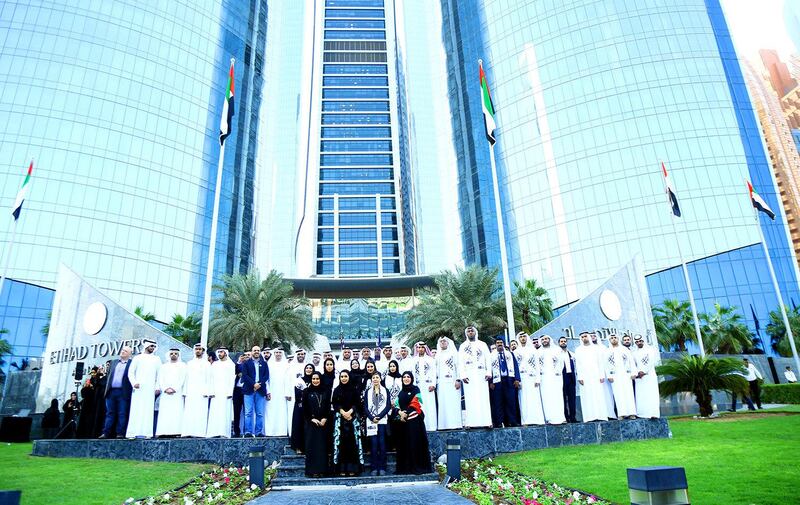Senaat, the industrial holding company managing assets worth Dh27.4bn for the government of Abu Dhabi, is reviewing privatisation strategies for some fully-owned entities, which include Emirates Steel and energy services firm National Petroleum Construction Company, according to its chief executive.
"At the right moment, we are always reviewing all the companies we have. It's always a health check we're doing for so many factors at the right moment, we decide yes or no," Jamal Al Dhaheri told The National in an interview in Dubai.
He cited listings by Senaat companies Arkan, which is involved in the construction materials manufacturing sector as well as essential food and beverage manufacturer Agthia traded on the Abu Dhabi Securities Exchange as examples of the holding firm’s periodic assessment of entities ripe for a listing. Both Agthia and Arkan are 51 per cent owned by Senaat.
“We always look at this,” he said. “Normally, unless something different happened we would go up to 49 [per cent] and we retain 51 [per cent] but it all depends on so many factors that we look at.”
"We have a portfolio of nine companies, we always look at their performance - how robust the business is, where is the cycle, that’s what we look at. So it’s not a one-off exercise, we always look at that. And we have a clear plan of what must be done,” Mr Al Dhaheri added.
Among the companies it manages are cables manufacturer Ducab, which is 50 per cent owned by the government of Dubai, aluminium extrusions plant Taweelah, Ducab aluminium company and date palm packaging and export firm Al Foah.
____________
Read more:
[ Agthia's Q3 net profit plunges 15% on subsidy reform for flour and animal feed ]
[ Senaat's 2016 profit edged lower ]
____________
In July, Senaat secured a US$400m revolving credit facility with 11 local and international financial institutions to be received in three to five-year tranches in lieu of its existing $750m revolving credit facility that it had opted for in 2013. The holding company’s current strategy is to streamline costs, particularly in utilities as it looks to create its own capabilities.
“We’re looking at ways and means of how we could reduce our utility [costs] and electricity is one of the key items, so we’re looking at our own generation and other ways and means of doing that and this is under discussion at the moment,” he said.
While the holding company is aware of added costs to consumers from the implementation of five per cent value-added tax (VAT) from 2018 onwards, Senaat remains concerned about other costs accrued from utilities and logistics that impact its business more acutely.
“The issue is if you look at other costs such as utilities, feedstock, in terms of logistics, [they can] contribute to over 80 per cent of our costs. We can manage the other 20 per cent, but the impact of whatever effort we put [in] regarding the 80 per cent, will lead to a bigger benefit,” Mr Al Dhaheri said
Saeed Al-Rumaithi, the chief executive of Senaat-owned Emirates Steel declined to comment on possible plans for initial public offering. The company is looking at collaboration among Gulf steel producers with respect to raw materials and logistics as they lobby to counter increasing “dumping” of product from China.
"There’s always been a co-ordination [at the GCC] but not to the level that we want it to be, I would say. We’re talking about a higher level of co-ordination in terms of raw materials, contracts, shipping contracts, There’s an opportunity for this and I would say that from my side I would be starting the initiative to contact the producers to take this forward,” Mr Al-Rumaithi said.
Holding company Senaat turned in revenues of Dhs13.4bn for the financial year 2016, which was lower than the Dhs14bn it registered in 2015. It made investments to the tune of one billion dirhams over the course of the last financial year.






